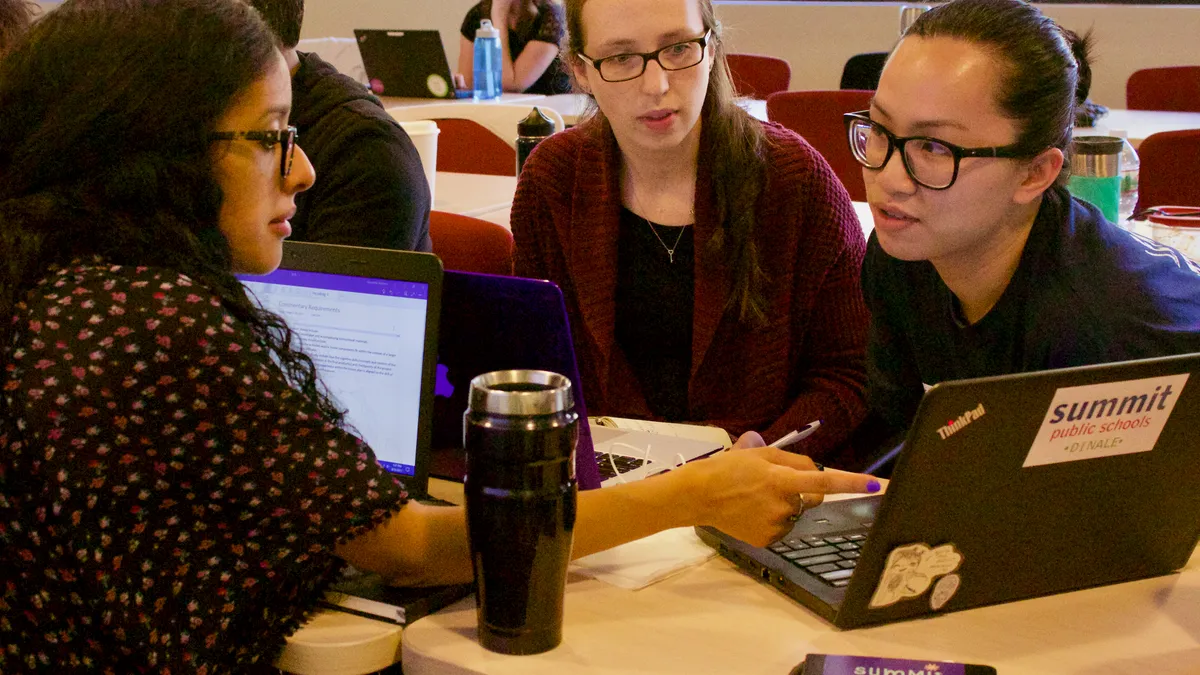Dive Brief:
- Mississippi dropped its test score requirement for admittance into teacher prep programs until Dec. 31, 2021, because of the novel coronavirus pandemic, according to The Hechinger Report. The decision will allow more teacher candidates to enter the educator pipeline.
- Following nationwide trends, enrollment in Mississippi teacher prep programs had declined overtime, but undergraduate enrollement in Jackson State University's teacher prep program has reportedly doubled in the two months since the testing waiver was announced.
- The testing requirements were a roadblock for many teachers, some of whom taught with temporary licenses until they could score high enough on the test to get into the state’s schools of education.
Dive Insight:
With coronavirus creating a health risk for many older teachers nearing retirement, the teacher shortage is expected to increase at a time when potential layoffs and hiring freezes loom. According to 2011-12 data from the National Center for Education Statistics, about 23% of the teaching workforce was between 50 and 59 years old, and almost 8% was older than 60.
Some blame the teacher shortage on the Praxis Core exam, which is used by 18 states and optional in five others, which has a high rate of failure for test takers.The test is especially a hurdle for minority teacher candidates. Only 38% of African Americans and 57% of Hispanics pass all four subject areas the first time, compared to 75% of white candidates. Overall, only 46% of test-takers pass the first time.
The Reading Instruction Competence Assessment in California has also come under fire recently. Critics say the test hasn’t been revised for more than 10 years and no longer aligns with the English language arts framework. There is also little evidence that passing the test makes for better educators.
The teacher shortage is also worse in higher-poverty schools, where there is a shortage of qualified teachers. An Economic Policy Institute report finds 66.2% of teachers in high-poverty schools have an educational background in the subject of their main assignment, compared to 72.5% of those in low-poverty schools.







 Dive Awards
Dive Awards





